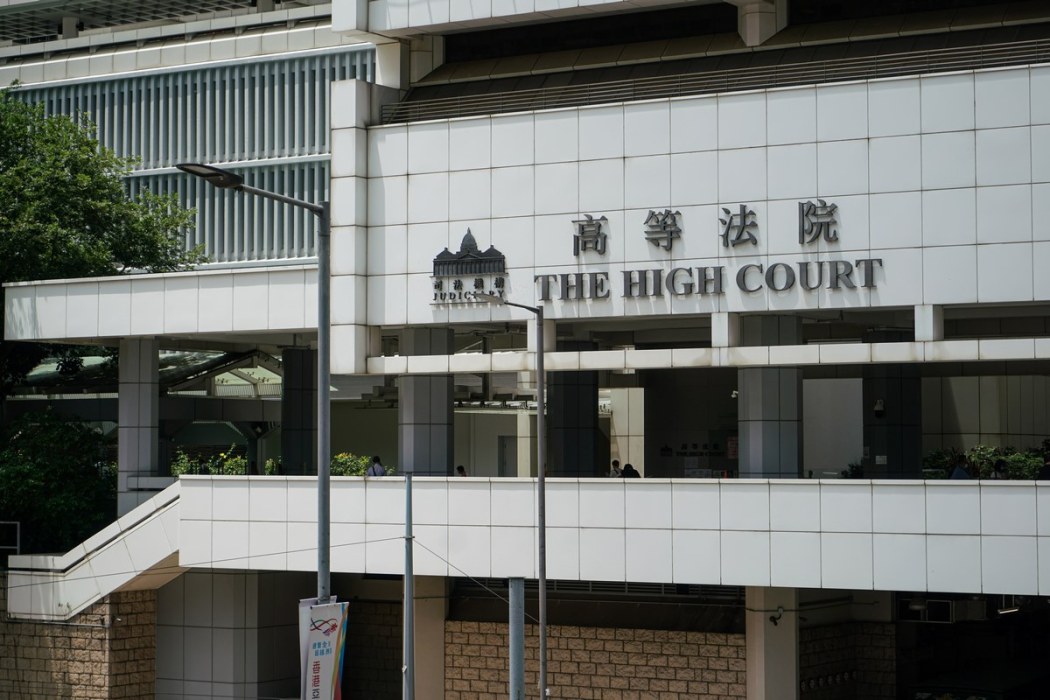Hong Kong’s High Court denied bail to a democrat facing charges under the national security law after prosecutors cited his social media statements as proof he was a security threat, a judgment released on Thursday reveals.
It was the latest case of courts relying on social media statements by pan-democrats to keep them behind bars as they await trial.

National security judge Esther Toh denied a bail application by former district councillor Ben Chung in late March, after he and 46 other democrats were charged with conspiracy to commit subversion.
The group had organised or taken part in an unofficial primary election for the democratic camp last July. The aim was to select candidates most likely to win a legislative majority in the later-postponed Legislative Council elections.
During the polling weekend in July, Chung shared a Facebook post by pro-democracy group Power for Democracy, a main organiser of the primary, saying security systems had been re-encrypted after police raided the Hong Kong Public Opinion Research Institute, the body which administered the city-wide polling.

“Just in case, the technical team is resetting the encryption key for the system due to system security considerations,” Chung’s post from July read.
Prosecutors on Monday cited the post to argue that the 32-year-old should be denied bail.
“The Applicant had also announced on 11 July 2020 in his Facebook page that ‘enhanced security/encryption measures had been employed in response (to police investigation)… there are sufficient grounds for believing and suspect that the Applicant will continue to commit acts endangering national security if granted bail,” the judgment cited prosecutors as saying.

Prosecutors also referred to statements made on Chung’s Telegram channel expressing support for protesters in June last year, before the security law came into force.
The Department of Justice also pointed to Chung’s role as a signatory in the opening of a bank account for Power for Democracy to argue that his role in the group was “pivotal and one of great responsibility.”
Giving her reasons for denying bail, Justice Toh wrote she had considered all evidence submitted, “including material that may not necessarily be admissible in a trial.”
Chung in mid-May announced his decision to quit as a member of Sai Kung District Council.
‘Say no to authoritarian rule’
Similar bail decisions have kept democrats behind bars because of their previous statements on social media, including those made before the security law came into force.
In mid-April Justice Toh considered personal WhatsApp messages between veteran democrat Claudia Mo and foreign media as sufficient grounds to deny her bail.

Separately, a judgment denying bail to former lawmaker Andrew Wan last Friday cited his previous statements of “saying no to authoritarian rule” and “his personal page on an American paid subscription service platform.”
Wan’s profile on Patreon, an online crowdfunding platform used by many prominent pro-democracy activists, had a total of 24 posts as of Thursday.
Only 11 of the 47 pro-democracy figures charged over the democratic primary have been granted bail, with the rest detained since February 28. The group make up almost all the people charged under the security law imposed by Beijing almost one year ago.
The law criminalises subversion, secession, collusion with foreign forces and terrorist acts following months of pro-democracy protests and unrest in 2019. It has since been invoked to arrest 107 people and charge 57 of them so far.
Support HKFP | Policies & Ethics | Error/typo? | Contact Us | Newsletter | Transparency & Annual Report | Apps
Help safeguard press freedom & keep HKFP free for all readers by supporting our team
























